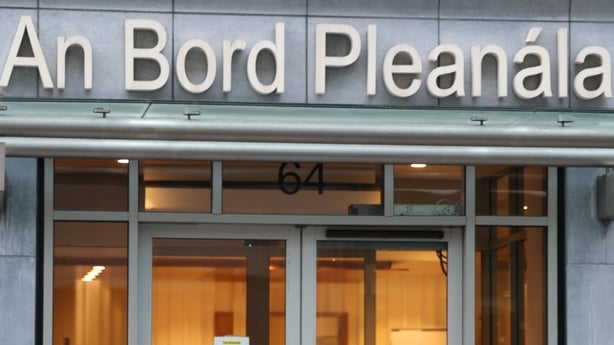The planning appeals board, An Bord Pleanála, is to carry out a review of appeals submitted by serial objector John Callaghan.
This follows revelations of so-called go-away payments received by Mr Callaghan featured in the RTÉ Investigates programme, The Planning Trap.
The appeals board executive yesterday met to discuss the fallout from the programme.
RTÉ Investigates understands that it has decided to review cases involving Mr Callaghan and/or cases involving his self-styled NGO group Sustainability 2050.
It is understood that the review will look for patterns in the appeals and issues about content in the context of the disclosures in the programme.
The programme, which can be viewed on the RTÉ Player, revealed how Mr Callaghan received payoffs after submitting mischievous planning appeals under the guise of environmental NGO groups.
The Attorney General and officials in the Departments of Justice and Housing are examining issues raised in the programme.
RTÉ Investigates asked both John and his brother Micheál Callaghan about payments they received from developers.
In a response to our letters, John Callaghan provided a one-line statement, stating: "Please be aware that neither of the parties referred to in your letters has done anything unlawful."
In a separate development, unrelated to the Callaghan brothers, it has emerged that the planning appeals board told a building developer it was unable to deal with evidence about a go-away payment.
The board returned the submission to the developer, saying it could not be considered, in March of this year, according to documents seen by RTÉ Investigates.
"Your submission cannot be considered by the board and is herewith returned," the letter states.

The case was highlighted in the Dáil yesterday by Labour Party leader Ivana Bacik.
The payment was sought by a planning objector in return for the withdrawal of an appeal against permission granted for a housing development.
The objector produced a non-disclosure agreement to facilitate the payment.
Money was to be paid into an escrow account in respect of work the objector wanted carried out.
The cost of this work was conservatively estimated by the developer at €500,000, but could have risen to €700,000.
The agreement, which has been seen by RTÉ Investigates, states that after receiving a payment, the objector "agrees to formally write to An Bord Pleanála, advising that it is withdrawing its objection".
The developer refused to pay and wrote to An Bord Pleanála with this evidence.
However, the board wrote back to the developer, stating he was not entitled to supply this evidence outside the timeframe for responding to a planning appeal, although the board was entitled to ask him for material if it so required.
The evidence about the attempt to secure a go-away payment only emerged after the timeframe period elapsed.
However, ongoing delays in the appeals process mean that the developer's project remains stalled even though he has what appears to be clear proof of an attempt to secure a go-away payment in return for the withdrawal of the appeal.
Asked if the board had actually read the evidence supplied in the non-disclosure agreement, a board official said this would seem to be the case as it could not consider a submission.
RTÉ Investigates understands that the developer submitted a formal complaint about the matter to the Garda Economic Crime Unit last Tuesday. He also resubmitted his complaint with his evidence to An Bord Pleanála.
The Revenue said: "The payment or exchange of funds, or other consideration, which ultimately influences the planning process potentially has tax implications."





